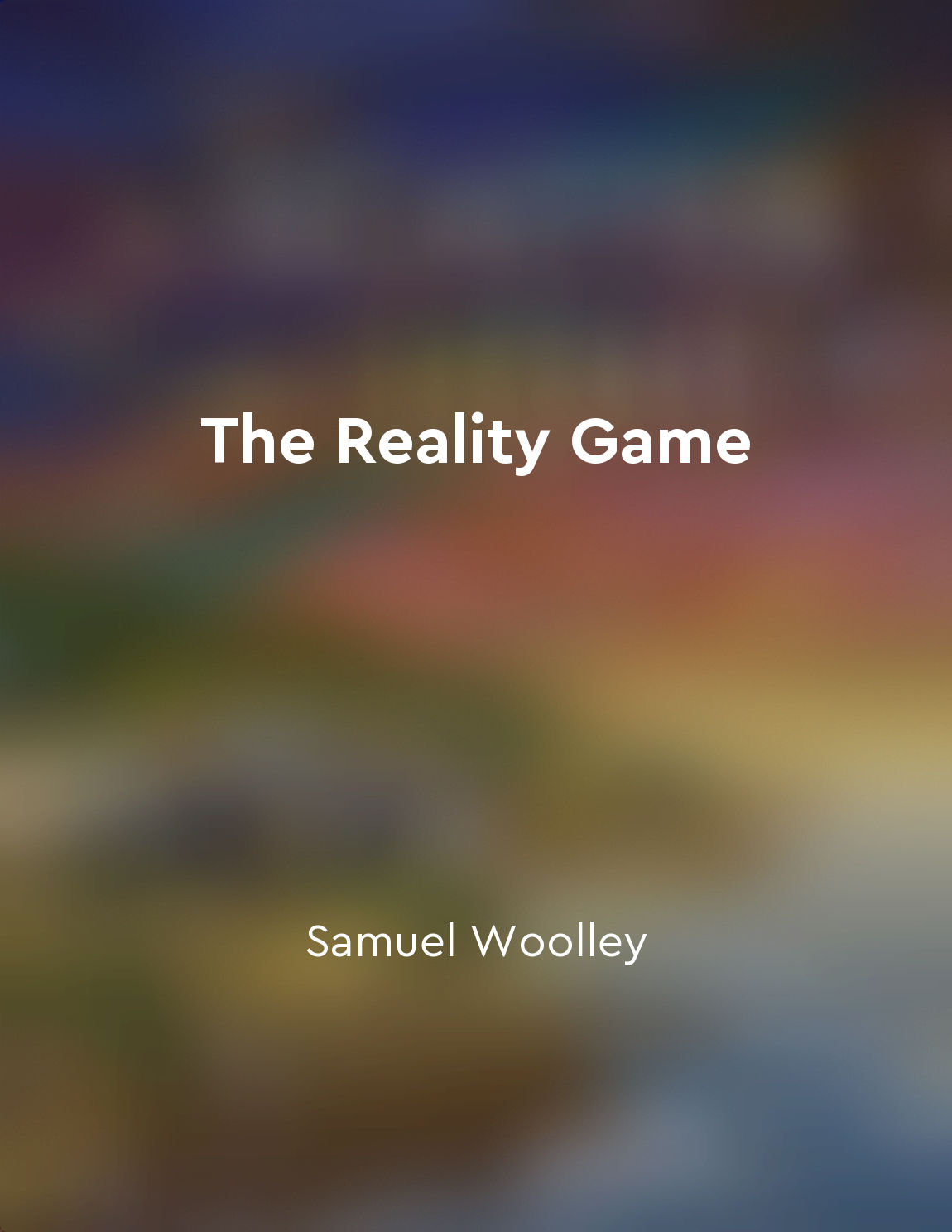The internet can create filter bubbles from "summary" of The Internet of Us: Knowing More and Understanding Less in the Age of Big Data by Michael P. Lynch
Filter bubbles are a phenomenon that is becoming increasingly common in the digital age. Essentially, they are personalized online ecosystems that are created by algorithms. These algorithms tailor the information that users see based on their past behavior, preferences, and interactions online. As a result, individuals are often only exposed to content that aligns with their existing beliefs and interests. This can lead to a narrowing of perspectives and a reinforcement of preconceived notions. The internet plays a significant role in the creation of filter bubbles because of the sheer volume of information that is available online. With millions of websites, social media platforms, and news outlets to choose from, individuals are able to customize their online experiences to a degree that was previously unimaginable. While this can be empowering in some respects, it also has the potential to limit exposure to diverse viewpoints and ideas. One of the dangers of filter bubbles is that they can contribute to the spread of misinformation and the polarization of society. When individuals are only exposed to information that confirms their existing beliefs, they are less likely to critically evaluate that information or seek out alternative perspectives. This can create an echo chamber effect where like-minded individuals reinforce each other's opinions without questioning their validity. Furthermore, filter bubbles can have implications for democracy and civic discourse. In a society where individuals are increasingly isolated in their own information bubbles, it becomes more challenging to have meaningful conversations about important issues. This can lead to a breakdown in communication, understanding, and compromise, ultimately weakening the fabric of society. In order to combat the negative effects of filter bubbles, it is important for individuals to actively seek out diverse sources of information and engage with viewpoints that challenge their own. Additionally, policymakers and technology companies have a role to play in promoting transparency and accountability in the algorithms that shape our online experiences. By acknowledging the existence of filter bubbles and taking steps to burst them, we can work towards a more informed, connected, and inclusive digital society.Similar Posts
Corporate interests distort information to maintain their power
In the realm of modern society, a dangerous force lurks beneath the surface - the ever-reaching arm of corporate power. These e...
We should question the sources of information online
In the age of big data and the internet, it is crucial to be vigilant about the sources of information we encounter online. The...
The internet allows us to selfselect the information we consume
In our modern society, the internet has revolutionized the way we access information. With just a few clicks, we can find a vas...
Data shows people's real desires and fears
Data has a way of revealing the truth about people's desires and fears. When individuals are asked directly about their prefere...

Factchecking plays a vital role in countering falsehoods
Factchecking is a critical tool in the fight against misinformation and disinformation. In a world where falsehoods spread like...
Online information is not always reliable
In an age where information is readily available at our fingertips, it can be easy to assume that everything we find online is ...

Governments use communication networks to control and manipulate information
Governments have long recognized the power of communication networks in shaping public opinion and controlling the flow of info...
Grassroots mobilization can challenge entrenched power structures
Grassroots mobilization is a potent force that has the ability to disrupt and challenge established power structures. When indi...
The corporate elite control resources and decisions for their own benefit
The world is dominated by a powerful corporate elite, a small group of people who control the vast majority of resources and ma...
Knowledge is becoming more fragmented
In the age of big data, knowledge is becoming increasingly fragmented. This fragmentation is a result of the vast amount of inf...
